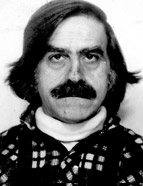

He was also involved in another controversy during that troubled period that extended well into the first half of the 1950s and which ignited the very intellectual cenacle to which he belonged from 1952 onwards. His minority position, Zhdanovian in tendency, eventually garnered the approval of Álvaro Cunhal (António Vale), incarcerated at the time a in a Lisbon prison, and who had already gained considerable political prominence among his fellow party members (J. Pacheco Pereira, Álvaro Cunhal. Uma biografia... [Álvaro Cunhal. A biography] (2005), vol. 3, pp. 219-262).
Several years after this controversy, in the late 1950s, while he was preparing the last volume of História da Cultura [The History of Culture] (1962) and a new essay, Dicionário Crítico ... [A Critical Dictionary…] (1960) –one of the most ambiguously insinuating pieces to emerge from his quill which rapidly soared to the status of theoretical catechism amongst his admirers and comrades– for a variety of reasons he came to the difficult decision of leaving the country. Undoubtedly, the relentless political and professional persecution to which he had been consistently subjected prevailed amongst such reasons.
In 1960, having been granted support by the French university, he took up residence in Paris, the city to which he had travelled in the autumn of the previous year. It was there that he encountered one of the liveliest and most liberating spaces in the developed world for cultural reflection and ideological debate, and against this background that a new segment of his life path would take root in terms of ideas and research and at a social and affective level (1960-1974). It may be said that his life was divided into two cycles. The first included his French exile (1960-1970), marked by the vast recycling of theories and information, followed by his much wished-for return to university teaching in Holland (1970-1974). A novel experience, removed from the Catholic-Latin world and mentality, where he experienced other forms of sociability and the coarse Nordic liberalism rooted in Protestantism and subjugated to Orwellian bureaucracy (...Correspondência […Correspondence] (2004), pp. 384-385)
It is worth noting that during his decisive French cycle he severed ties with Marxist militancy and ideology, the foundations of which had already been shaken since the 20th Congress of the Communist Party of the Soviet Union (CPSU) (1956) when the crimes committed under Stalin and his personality cult had been exposed. For Saraiva, this had given rise to a gradual but steady fading from his impatient and inquisitive mind of the vague hopes he had held for a collectivist society.
